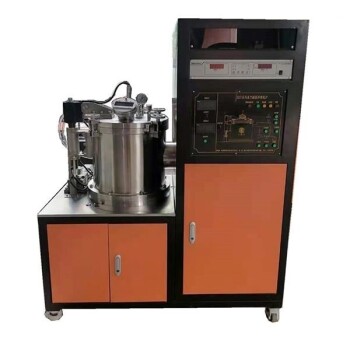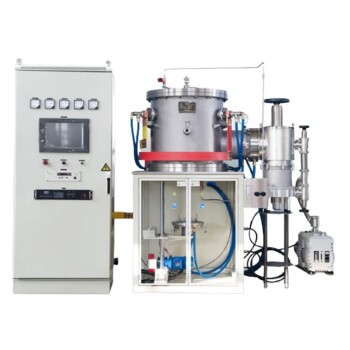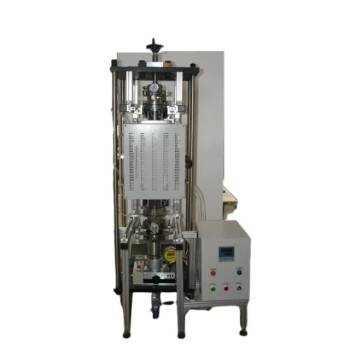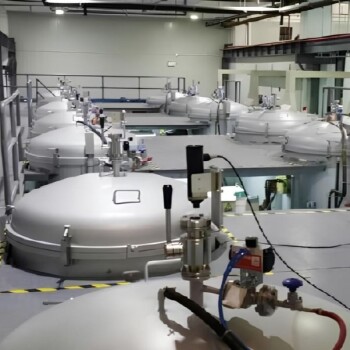In modern heat treatment, the vacuum furnace is a primary choice for achieving high-quality, precise, and repeatable results. While various furnaces like box-type high-temperature furnaces are used, the vacuum furnace's ability to create a highly controlled environment makes it essential for processes where material integrity is paramount.
The most critical factor in selecting a furnace for heat treatment is not just its ability to reach a certain temperature, but its capacity to control the atmosphere surrounding the material. This control prevents unwanted chemical reactions, ensuring the final product meets exact specifications.
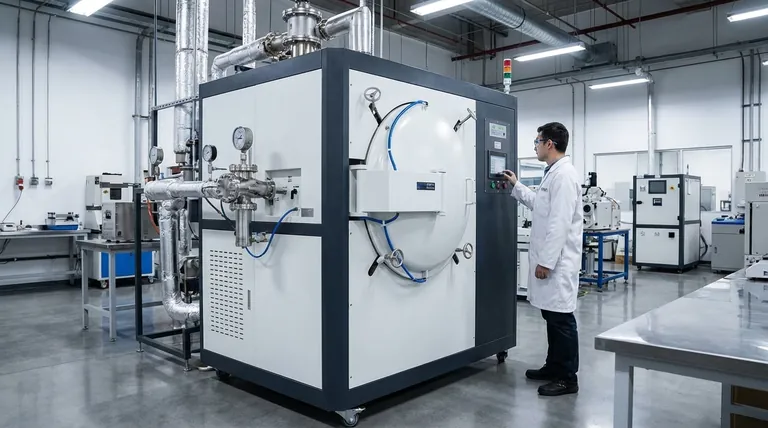
Why Furnace Selection is Critical
Heat treatment is a precise science that goes far beyond simply heating and cooling a part. The environment in which this occurs dictates the final chemical and physical properties of the material.
Beyond Simple Heating
A heat treatment furnace must provide a stable, predictable, and uniform environment. The goal is to alter the material's microstructure in a very specific way.
The Role of Atmosphere
At high temperatures, most metals are highly reactive with gases in the air, especially oxygen. This reaction, known as oxidation, can create a layer of scale, contaminate the material, and compromise its structural integrity.
Achieving Specific Material Properties
The right furnace enables processes like annealing, brazing, sintering, and tempering. These processes require exact temperature control and atmospheric conditions to achieve desired outcomes like improved hardness, density, and high-temperature resistance.
The Vacuum Furnace: A Standard for Precision
A vacuum furnace performs heat treatment in an environment below one atmospheric pressure. By removing the air and its reactive gases, it provides a fundamentally cleaner and more controlled processing environment.
How a Vacuum Furnace Works
The core principle is to pump the air out of a sealed chamber before heating begins. This eliminates the risk of oxidation, decarburization, and contamination from atmospheric gases, creating a pure environment for the treatment process.
Key Benefit: Eliminating Oxidation
The primary advantage is the prevention of oxidation. This results in a bright, clean, oxide-free finish on most metals and alloys, producing a higher purity end product without surface defects.
Unmatched Process Control and Uniformity
Vacuum furnaces offer exceptionally precise temperature management and uniform heating. This ensures that every part in a batch, and every batch over time, receives the exact same treatment, leading to highly reliable and repeatable results.
Versatility Across Processes
This technology is highly versatile, capable of handling a wide range of processes within a single unit. These include vacuum quenching, vacuum brazing, vacuum sintering, and vacuum annealing, making it a flexible asset.
Understanding the Trade-offs
While vacuum technology offers superior results, it's essential to understand its implications. No single solution is perfect for every application.
Initial Investment and Complexity
Vacuum furnaces are sophisticated systems that represent a higher upfront capital investment compared to simpler atmospheric furnaces. Their operation and maintenance also require a higher level of technical expertise.
Batch Processing vs. Continuous Flow
Most vacuum furnaces are designed for batch processing. For certain high-volume, continuous manufacturing lines, this might be less efficient than a continuous belt furnace operating with a controlled gas atmosphere.
When It Might Be Overkill
For less sensitive materials or processes where a degree of surface oxidation is acceptable or can be removed later, a more conventional and less expensive atmospheric furnace may be a perfectly adequate and cost-effective solution.
Making the Right Choice for Your Goal
Selecting the right furnace depends entirely on the material, the process, and the required quality of the final component.
- If your primary focus is maximum purity and performance: A vacuum furnace is the ideal choice for applications in aerospace, medical, or high-end manufacturing where zero contamination and superior mechanical properties are non-negotiable.
- If your primary focus is general-purpose strengthening: For many standard hardening, tempering, or annealing tasks on less reactive materials, a simpler and more economical box-type atmospheric furnace can be sufficient.
- If your primary focus is improving material density at very high temperatures: A specialized high-temperature furnace, which could be either a vacuum or controlled atmosphere design, is necessary for processes like sintering advanced ceramics or powdered metals.
Ultimately, the right furnace is the one that provides the precise environmental control your material requires to achieve its intended properties.
Summary Table:
| Furnace Type | Primary Use Case | Key Advantage |
|---|---|---|
| Vacuum Furnace | High-purity applications (aerospace, medical) | Eliminates oxidation, ensures maximum material integrity |
| Box-Type Atmospheric Furnace | General-purpose strengthening (hardening, tempering) | Cost-effective for less sensitive materials |
| High-Temperature Furnace | Sintering ceramics or powdered metals | Handles extreme temperatures for improved density |
Need precise heat treatment for your materials? KINTEK specializes in high-performance lab equipment, including vacuum furnaces designed for maximum purity and repeatability. Whether you're in aerospace, medical device manufacturing, or advanced materials R&D, our solutions ensure your materials meet the highest standards. Contact our experts today to find the perfect furnace for your application!
Visual Guide
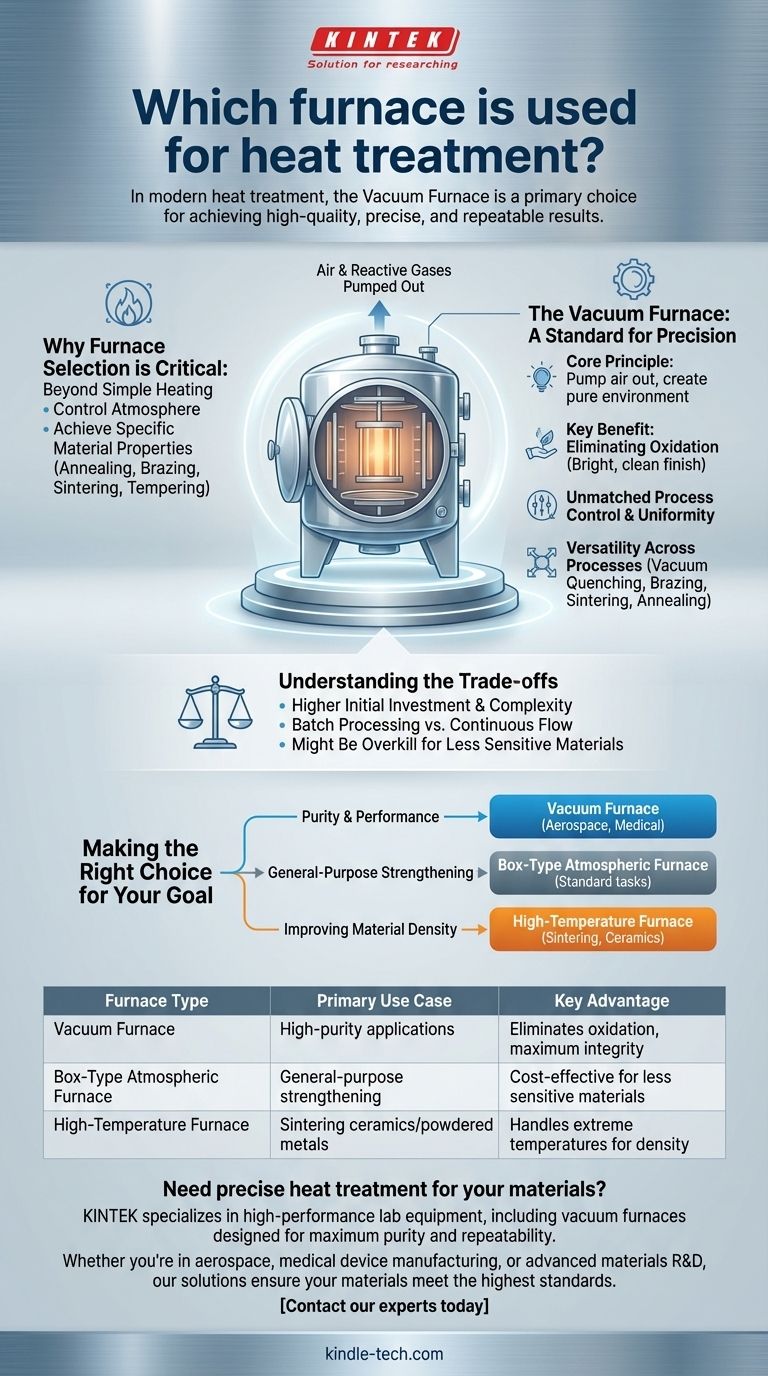
Related Products
- Vacuum Heat Treat Furnace with Ceramic Fiber Liner
- Vacuum Heat Treat Furnace and Levitation Induction Melting Furnace
- Molybdenum Vacuum Heat Treat Furnace
- Vacuum Heat Treat Sintering Brazing Furnace
- 2200 ℃ Graphite Vacuum Heat Treat Furnace
People Also Ask
- What is vacuum heat treatment process? Achieve Superior Control, Cleanliness, and Quality
- What are vacuum furnaces used for? Unlock Ultimate Material Purity and Performance
- What is the maximum temperature in a vacuum furnace? It Depends on Your Materials and Process Needs
- What is the standard thickness of plating? Optimize Durability, Corrosion & Cost
- What is the leak rate for a vacuum furnace? Ensure Process Purity and Repeatability

